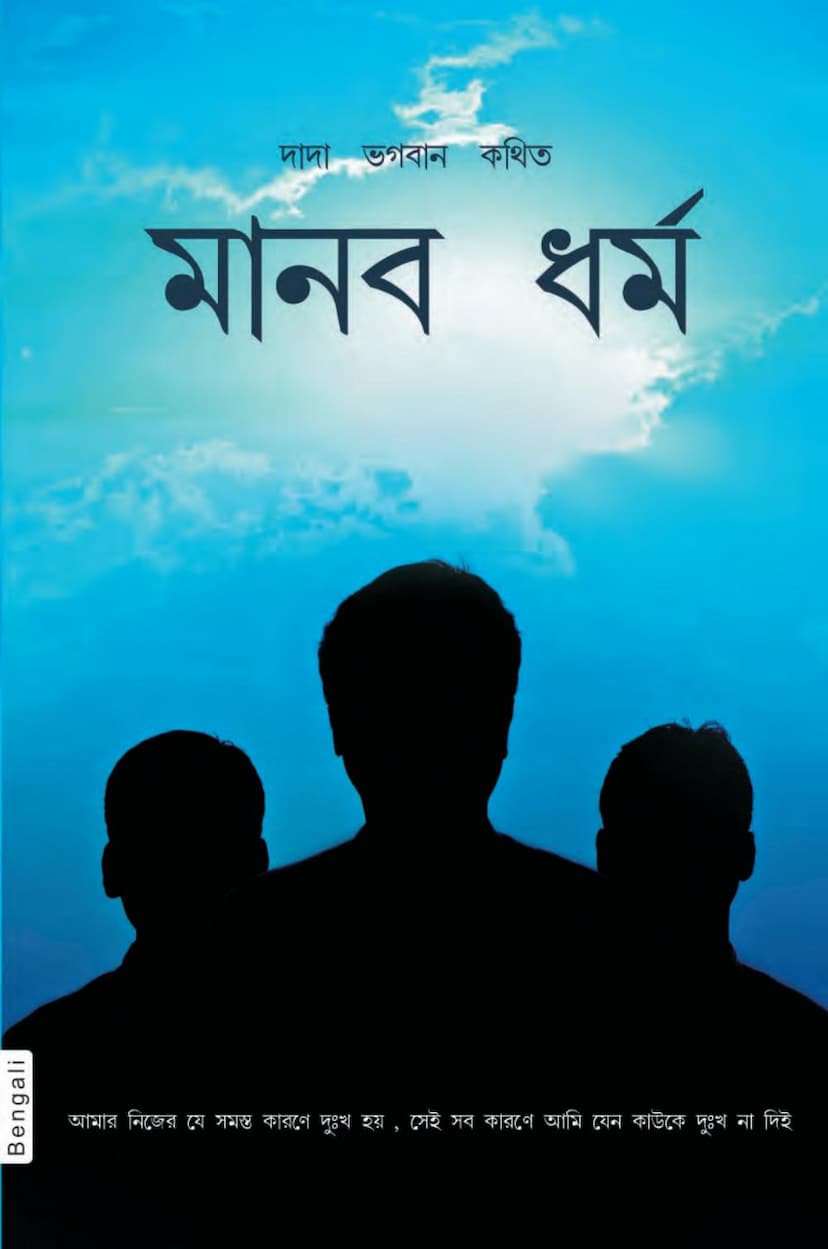The Practice Of Humanity Bengali
Added to library: September 2, 2025

Summary
Here's a comprehensive summary of "The Practice of Humanity" (Human Dharma) by Dada Bhagwan, based on the provided Bengali text:
Core Principle of Humanity:
The fundamental essence of humanity, according to Dada Bhagwan, is the unwavering principle: "Do not cause suffering to anyone for any reason that causes you suffering." This is the cornerstone and the very first sign of practicing humanity.
Understanding True Humanity:
The book emphasizes that what people often consider "humanity" is not its true meaning. True humanity is not merely about refraining from causing suffering, but about internalizing the understanding that whatever suffering you experience, others also experience. This empathy is the driving force behind acting humanely.
Key Aspects and Teachings:
-
Empathy as the Foundation: The core teaching revolves around understanding that your own pain and discomfort are mirrored in others. This understanding should guide all interactions.
- If someone hits you, you wouldn't like it, so don't hit others.
- If someone insults you, you wouldn't like it, so don't insult others.
- If you lose money, you feel distress, so consider how much distress someone else feels if they lose their money. This is why returning lost items is a sign of humanity.
- When a guest visits, consider how you would feel if you were a guest in your own home for an extended period.
-
Humanity is Not About Rituals, But Actions: True humanity is not about following specific religious rituals or identifying with a particular sect. It's about the practical application of empathy in daily actions.
-
The Goal of Human Life: The ultimate aim of human life is to attain a high level of humanity, aiming for at least 50% in the "humanity score," with 90% being an even higher aspiration. Without humanity, the purpose of human life is lost.
-
The Four Life Paths and Liberation:
- Human birth is a crucial junction from which one can move to any of the four realms of existence based on their karma.
- Humanity leads to human rebirth.
- Deviating from humanity leads to animalistic realms.
- Practicing a higher, "super-human" dharma and selfless service can lead to heavenly realms.
- Attaining Self-Knowledge from a Living Gnani (an enlightened being) in a human birth is the path to Moksha (liberation).
-
The Nature of Actions and Consequences:
- Humanity: Enjoying what is rightfully yours.
- Animalistic behavior (Pashuta): Claiming what is yours and what belongs to others.
- Divine quality (Daivi Guna): Giving your share to others, even if you need it yourself.
- Actions contrary to one's rightful share lead to negative consequences in future lives.
-
Practical Examples:
- Found money: If you find money, consider the owner's distress and advertise to return it.
- Borrowing money: If you borrow, consider the distress of the lender if they don't receive it back and make timely repayments.
- Mistakes of subordinates: If a servant or employee makes a mistake, like breaking a cup, understand that they are not doing it intentionally. Show understanding and guide them gently rather than angering them. The principle is to put yourself in their place.
- Criticism: If someone criticizes you, do not retaliate. Instead, reflect on your fault and ask for clarification.
- Attraction to others' wives/daughters: If you wouldn't want someone looking at your wife or daughter with ill intent, then you should not look at anyone else's wife or daughter with ill intent. This reciprocity is humanity.
-
The Role of a Gnani: A truly enlightened being (Gnani Purush) speaks with deep understanding and purpose, clarifying one's viewpoint and elevating their consciousness. Direct Self-Knowledge received from such a being is essential for spiritual awakening.
-
The Importance of Correct Understanding: Many people misinterpret humanity. It is crucial to understand the true meaning, as taught by the Gnani. The book is intended to be studied and understood, and ideally, taught in schools.
-
Beyond Humanity for Moksha: While practicing humanity is essential, it is a stepping stone. The ultimate goal is Moksha, which requires further spiritual development and Self-Knowledge. Humanity prepares one for this ultimate journey.
-
Critique of Modern Practices: The book critiques certain societal practices that are mistakenly labeled as humanity, such as charity that creates dependency or actions driven by ego and a desire for recognition. True service is about enabling self-reliance.
In essence, "The Practice of Humanity" by Dada Bhagwan is a profound guide to living a life of empathy, compassion, and ethical conduct. It emphasizes that true humanity is an internal realization of shared suffering and a commitment to alleviating it in all interactions, ultimately paving the way for spiritual progress and liberation.